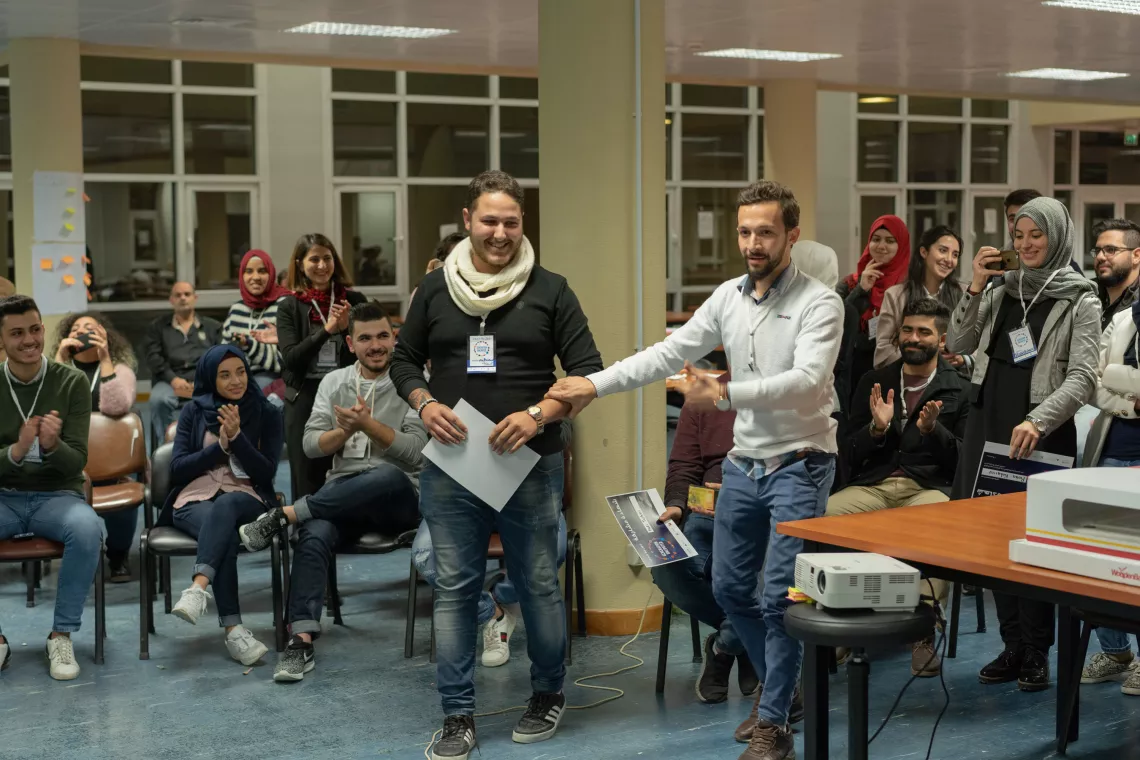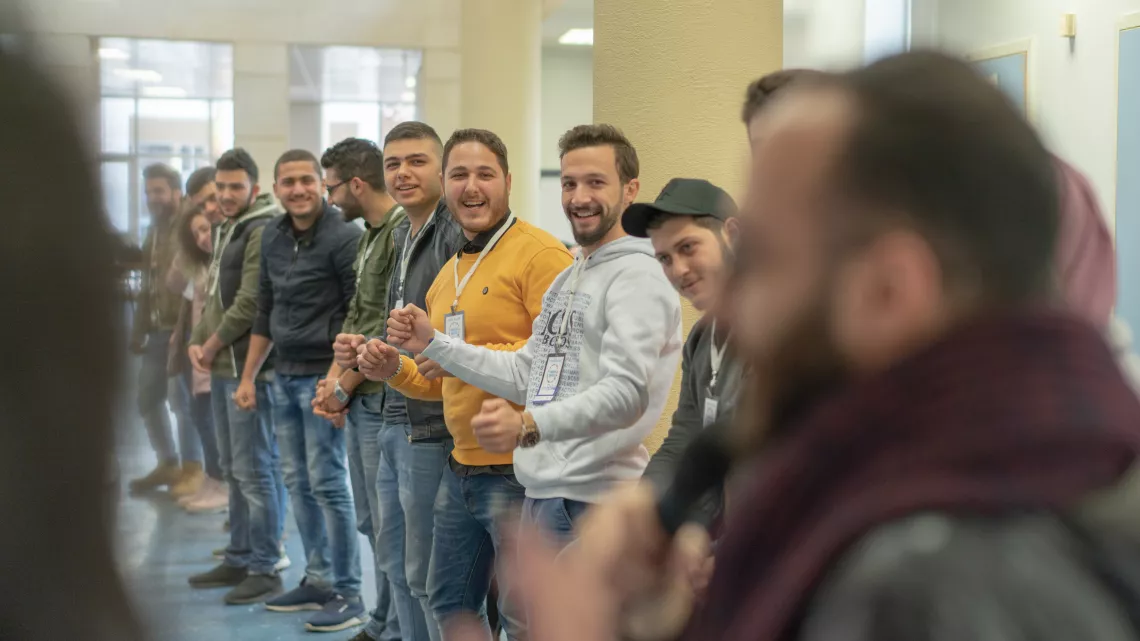UNICEF Lebanon and Generation Unlimited - empowering a young generation to feed the hungry
"We see people on the streets begging for food. Yet around the corner trash cans are overflowing with waste from the night before. We want to be part of a movement that helps feed the vulnerable.”

- Available in:
- English
- العربية
Mahmoud and Hussein from Nabatieh
For these two twenty-four-year olds from Nabatieh, the world around them exhibits an all-too-often hungry face. Mahmoud and Hussein, from Lebanon’s southern city of Nabatieh, are among the more fortunate of their generation – they’re educated, they have supportive families, they live safe lives, and take being healthily nourished as a given. However, being socially aware, they look around their city and see that it is not the same for all.
"We see people on the streets begging for food," they say, before adding, "yet around the corner trash cans are overflowing with waste from the night. The privileged element of our society needs to be involved and encouraged to take responsibility for what is going on in the lives of those around them. We want to be part of a movement that helps feed the vulnerable youth of our city."
"We want to be part of a movement that helps feed the vulnerable.”

We've done research on this issue, we’ve looked at the statistics, we know the facts. But, to be honest, you don’t need to look far to see what is going on. A lot of people don’t have food for one day, two days, more. So, through our project ‘Extra,' we aim to try to help them.
It’s a simple plan. We’ll approach restaurants in the city - they know after lunch and dinner service what excess they have. They can’t reuse it, they have no choice at the moment other than to throw it away. Citywide, never mind countrywide, this is a considerable amount of waste. We want to give them another option, something that will cost them nothing but will change the lives of many of Nabatieh’s citizens.
We’ll collect this excess food from the restaurants, and have in mind to even collect from private homes after they’ve had a dinner party. We’ll transport it hygienically and move quickly so we can distribute to the needy while it is fresh. People will come to our central location, a field kitchen if you like, or perhaps we will grow to the extent where we can deliver.
"It’s a simple plan. We’ll approach restaurants in the city - they know after lunch and dinner service what excess they have. They can’t reuse it, they have no choice at the moment other than to throw it away."

Part of our challenge in making this a success is identifying who will be the beneficiaries. The truly needy are often the last ask. People have pride, and this stops them from coming forward.
We’ll solve this through our social network and local contacts. We have useful information which tells us where these people are. We’ll also work with NGOs to identify the needy - they already know who will benefit the most.
It’s a model that is endlessly expandable. We’ll start it in Nabatieh and then, who knows how far we can go with it and how many lives we can improve?”
A lot of people don’t have food for one day, two days, more. So, through our project ‘Extra,' we aim to try to help them.



